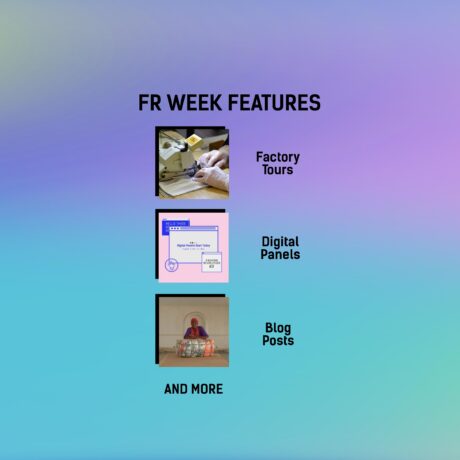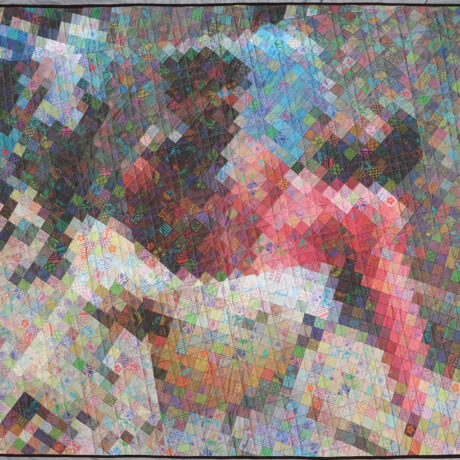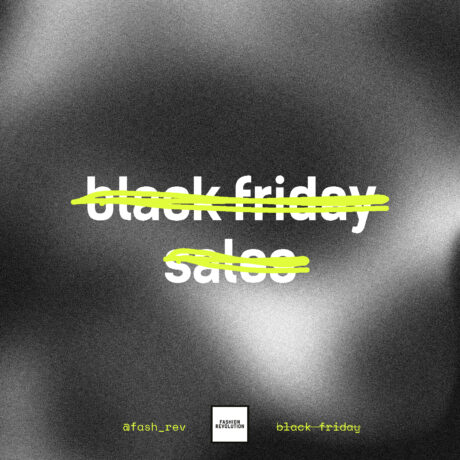12 Days of Conscious Consumerism: An Interview with Ethical Threads
I was recently interviewed by a new blog called Ethical Threads — we talked about the behind the scenes of entrepreneurship and the future of the fashion industry. Since many of you are new readers here, I thought a repost would be a good way to share the short version of my journey into sustainable fashion. You can read the original post here.
ET: Tell us about your journey.
SW: I spent two years after college traveling and bartending around the world. While I was living in Australia, I met another American girl who I reconnected with when I returned to the States. We had been out of school for two years, but neither of us was ready to get a “real job,” so we decided to start a business. We went down to Guatemala thinking we could start a fair trade export business and work with local artisans.
Once we got down there, we realized we were in way over our heads and it was not the avenue we wanted to pursue. So instead, we started designing a clothing line of 10 pieces that could be mixed and matched to create over 100 different looks — the ideal wardrobe for minimalists and travelers. We visited an organic cotton cooperative in Nicaragua to see what it would take to produce our line, and in the meantime, started learning about the negative effects of the traditional fashion industry.
We returned to the States and continued to do research for another year before we found materials and a manufacturer that met our own sustainability guidelines. It was a long process and we faced a lot of closed doors, but we were lucky to find a great partnership in the U.S.
I can’t say that there was one “a-ha” moment for me. I spent two years observing how the rest of the world lives, often with so much less than I was used to. I saw the effects of the western world’s consumption habits in countries on the other side of the world. It was a gradual shift in my mindset through observation and research that led me to change my own consumption habits and commit to living more mindfully.
ET: Your current focus is on consulting for people and companies who want to move towards sustainable practices. What are the challenges of this work? What have you learned along the way?
SW: I work with designers and sustainable apparel companies on a gamut of different projects, from sourcing and manufacturing to wholesale strategy to media outreach. Having gone through every single step of starting my own clothing company, I’ve acquired a “jack-of-all-trades” mentality. When you bootstrap an entire company with just the help of your co-founder, you acquire a lot of different skills. That’s probably the most important lesson I’ve learned in this journey — be open to taking on any project or task and be willing to figure it out on your own.
The challenges vary, depending on the project. In the beginning, I didn’t do a very good job of figuring out exactly what the client wanted from me. Even if you lay out the tasks to be completed, there is always an underlying challenge that they actually want you to fix for them. Learning to ask the right questions and look beneath the layers has been a hugely important lesson.
ET: Describe an average day for you.
SW: The average day for me starts without an alarm clock. I’ve learned to respect the flow of how I work and what gives me the most energy. I’m a slow starter, so I don’t push myself to wake up at the crack of dawn just because I’ve been told that’s what will get me “ahead.”
I wake up when I’m ready; I make green juice first thing; I get dressed; I make coffee and sit down at my computer. My job requires a lot of writing (whether it’s my own blog posts or a column that I write for the Ethical Fashion Forum or a guest post), so I usually write in the morning. I work on client projects in the afternoon, and schedule any meetings or calls for the end of the day. I’m currently working on Fashion Revolution Day 2014 and planning events for the Sustainable Fashion Collaborative of Boston, so I save those project for the end of the day, too.
I spend a lot of time working from home by myself, which can get lonely. I’m very conscious of breaking up my day if I feel like I need to go for a walk or get coffee with a friend. I pursued an entrepreneurial path so that I would have complete freedom – it’s important to me to honor that decision with the lifestyle choices I make day to day.
ET: Where can people get your innovative Versalette?
SW: My co-founder and I closed {r}evolution apparel last December, feeling pulled to pursue other projects. I wanted to help other designers and brands navigate the complicated world of sustainability, and Kristin wanted to continue with design and production. She is currently selling the Versalette under her new brand, Seamly.co. It’s available for sale here.
ET: Why should we care about slow fashion?
SW: Simply because we can’t afford not to. The planet is literally suffocating under our consumption habits, especially in the western world, and if we don’t begin to make use of the resources we already have then I truly believe the planet will reject us. It’s already starting to show signs of it.
Americans consume at an unsustainable rate, throwing away 84 pounds of textiles per person per year. We need to get to a point where we stop and ask ourselves what void we’re trying to fill with material things. And then we need to start learning how to mend our own clothes, support apparel brands that limit their inventory, and be mindful of where and how our clothes are made.
It all starts with the first small step of awareness.
A big thank you for the fun interview, Neeru! And thanks to everyone else for reading.
Reprinted by permission from shannonwhitehead.com.








